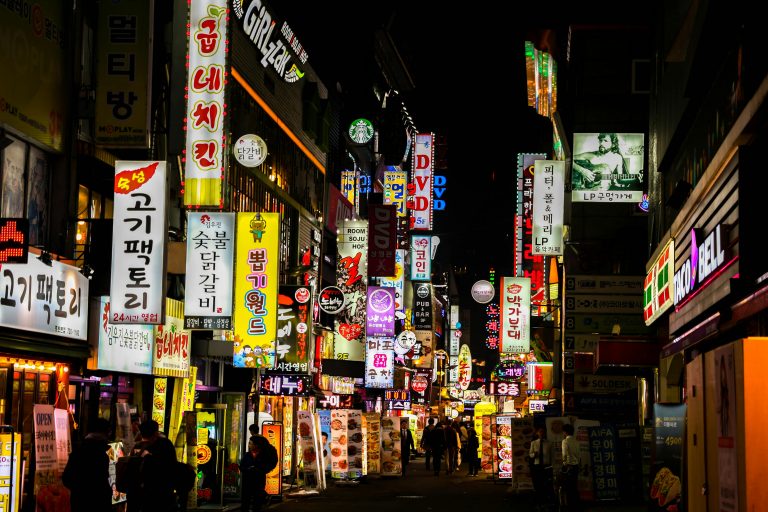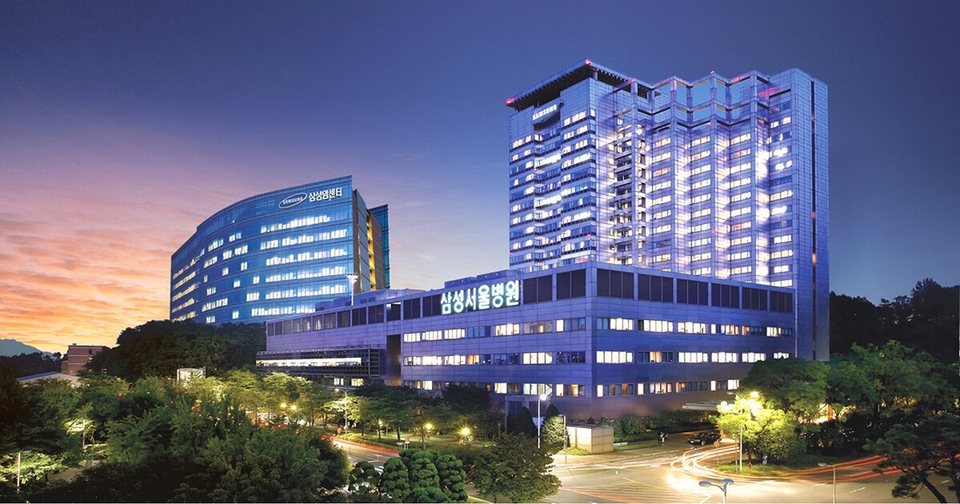South Korea
Insurance in South Korea for Foreigners and Expats
 Overview
Overview
South Korea, officially known as the Republic of Korea, is a vibrant and technologically advanced nation located in East Asia. With its rich cultural heritage, bustling metropolises, and stunning natural landscapes, South Korea has become an increasingly popular destination for expats seeking new opportunities and experiences. The official name of South Korea is the Republic of Korea (ROK). South Korea has one of the strongest economies in Eastern Asia.
As of 2024, South Korea boasts a population of approximately 51 million people, with its capital, Seoul, serving as the country’s political, economic, and cultural hub. The nation is renowned for its rapid economic growth, often referred to as the “Miracle on the Han River,” which transformed it from a war-torn country to one of the world’s leading economies in just a few decades.
For expats, South Korea offers a unique blend of traditional Asian culture and modern conveniences. The country is famous for its cutting-edge technology, efficient public transportation, and world-class healthcare system. However, navigating the insurance landscape in a foreign country can be challenging, especially given the language barrier and different regulatory environment.
This comprehensive guide aims to provide expats with essential information about various types of insurance in South Korea, including health, travel, and life insurance. We’ll explore the local healthcare system, compare local and international insurance plans, and highlight some of the best insurance providers available to foreigners living in South Korea. Most expats in South Korea tend to be working on assignment from their companies The main industries are manufacturing and service industries, such as banking as well as teaching English as a foreign language.

Health Insurance in South Korea
South Korea has one of the most modern and developed healthcare sectors in Asia. It has many medical facilities, both public and private, that provide first class levels of care. Up-to-date medical facilities are broadly accessible in South Korea. However, treatment can be costly for non-nationals and English-speaking doctors can be difficult to find outside the major metropolises.
On arrival in South Korea, expats must first apply for the Alien Registration Card before being eligible to apply for their NHIP card. The payment structure is slightly different for expats, as the employer will pay 50 percent of the health insurance tax and the expat the other 50 percent. When a foreign national requires treatment at a health facility, they are still required to pay a small consultation fee.
One important point to note is that it can take a number of months to receive the Alien Registration Card, and during this time an expat is not covered by the scheme. It is therefore wise to consider purchasing a South Korea health insurance plan to ensure you are fully protected from the time you arrive.
Most health care facilities, particularly those in Seoul, will have an English-speaking doctor available to assist foreign nationals. Junior medical staff and nurses may not be able to speak English. There are a growing number of international clinics that now cater to foreign expatriates. Staff at these clinics can all speak English although it should be noted that medical costs are much higher. Overall, hospitals and clinics are generally well equipped.
National Health Insurance (NHI)
South Korea’s National Health Insurance is a mandatory social insurance program that covers all residents, including most expatriates. As of 2024, foreign residents who have lived in Korea for six months or longer are required to enroll in the NHI system.
Key features of the NHI:
- Universal coverage: The NHI covers a wide range of medical services, including doctor visits, hospitalization, and prescription drugs.
- Cost-sharing: Patients typically pay 20-50% of medical costs, depending on the type of care received.
- Affordable premiums: Premiums are based on income and are generally considered reasonable compared to many other countries.
- Limited coverage abroad: The NHI primarily covers treatment within South Korea, with limited coverage for emergencies abroad.
Enrolling in the NHI:
- Visit your local National Health Insurance Service (NHIS) office
- Provide necessary documents (e.g., passport, alien registration card, proof of employment)
- Complete the application form
- Receive your insurance card
Private Health Insurance in South Korea
While the National Health Insurance (NHI) system provides a solid foundation for healthcare coverage, many expats in South Korea opt for private health insurance to enhance their protection and access to medical services. Here’s a more detailed look at private health insurance options and their benefits:
- Enhanced Coverage: Private insurance often covers a wider range of treatments and services not included in the NHI. Higher coverage limits for expensive procedures or long-term care. May include dental and vision care, which are limited in the NHI
- Reduced Wait Times: Private insurance holders often experience shorter wait times for appointments and procedures. Access to a wider network of healthcare providers, including premium hospitals and clinics
- English-Language Services: Many private insurers offer English-speaking customer support. Assistance with translation and interpretation at hospitals. Help navigating the Korean healthcare system
- Customizable Plans: Ability to tailor coverage to individual needs (e.g., maternity care, mental health services). Options for different levels of coverage and deductibles to suit various budgets
- Coverage for Pre-existing Conditions: Some private plans may offer coverage for pre-existing conditions, which can be crucial for expats with chronic health issues
- Repatriation Coverage: Many international plans include medical evacuation and repatriation services. Vital for expats who may need to return to their home country for treatment
- Continuity of Care: International plans can provide seamless coverage if you relocate to another country. Useful for expats on temporary assignments or those planning to move frequently
- Direct Billing: Many private insurers have direct billing arrangements with hospitals, reducing out-of-pocket expenses. Simplified claims process compared to the NHI system
- Preventive Care: Private plans often emphasize preventive services like health check-ups and vaccinations. Can lead to better long-term health outcomes and potentially lower healthcare costs
- Peace of Mind: Comprehensive private insurance can provide reassurance in a foreign healthcare system. Particularly valuable for families or those with specific health concerns
Best Health Insurance Providers in South Korea
For expatriates living in South Korea, selecting the right international health insurance is crucial for ensuring access to quality healthcare both within the country and abroad. Here are some of the best international health insurance companies for expats in South Korea:
Cigna: Cigna offers comprehensive global health insurance plans with extensive coverage, including inpatient and outpatient care, medical evacuation, and wellness benefits. They are known for their flexible plan options and a wide network of healthcare providers worldwide.
AXA: AXA is a leading global insurer offering plans that cover a wide range of medical needs, including preventative care, hospitalization, and specialist consultations. Their plans are known for being highly customizable to suit the needs of expatriates.
IMG: International Medical Group (IMG) offers a variety of plans for individuals and families, including coverage for emergency care, routine check-ups, and more. IMG is popular for its affordability and flexibility, making it a good choice for budget-conscious expats.
Allianz: Allianz provides comprehensive international health insurance with a focus on high-quality care and extensive global networks. Their plans often include optional add-ons like dental and optical care, making them a versatile choice for expats.
Best Hospitals in South Korea
1.Asan Medical Center: AMC is one of the largest hospitals in South Korea, with over 2,700 beds and advanced medical technology. It specializes in cancer treatment, organ transplants, and cardiovascular diseases. AMC offers a comprehensive International Health Care Center with services in multiple languages, including English, Chinese, and Russian. They provide personalized care and assistance with medical appointments and translations.
- Address: 88 Olympic-ro 43-gil, Songpa-gu, Seoul, South Korea
- Phone Number: +82-2-3010-3114
2. Samsung Medical Center: SMC is known for its advanced medical equipment and facilities. It has specialized centers for cancer, heart disease, and organ transplants, and is a leader in medical research. SMC offers an International Health Services department that provides comprehensive care for international patients, including language support and assistance with medical procedures.
- Address: 81 Irwon-ro, Gangnam-gu, Seoul, South Korea
- Phone Number: +82-2-3410-2114
3. Severance Hospital – Yonsei University: Severance Hospital, part of the Yonsei University Health System, is one of the oldest and most respected hospitals in South Korea. Located in Seoul, it offers a wide array of medical services, including advanced diagnostics, surgery, and rehabilitation. The hospital is known for its expertise in oncology, orthopedics, and organ transplantation. Severance Hospital is also a major center for medical research and education.
- Address: 50-1 Yonsei-ro, Seodaemun-gu, Seoul, South Korea
- Phone Number: +82-2-2228-0114
4. Seoul National University Hospital: Seoul National University Hospital is a premier medical institution known for its comprehensive medical services and research capabilities. Located in the heart of Seoul, SNUH provides top-notch care in various specialties, including internal medicine, surgery, and pediatrics. The hospital’s affiliation with Seoul National University ensures a strong focus on medical education and cutting-edge research, making it a preferred choice for complex medical conditions.
- Address: 101 Daehak-ro, Jongno-gu, Seoul, South Korea
- Phone Number: +82-2-2072-0505

Healthcare System in South Korea
South Korea boasts one of the most advanced and efficient healthcare systems in the world, consistently ranking high in global healthcare indices. The system is a unique blend of public and private elements, offering citizens and residents access to high-quality medical care. South Korea’s healthcare system is a sophisticated blend of public and private elements, anchored by the mandatory National Health Insurance (NHI) program. This universal coverage system ensures that all residents, including most expatriates, have access to affordable basic healthcare. The NHI operates on a cost-sharing model, where patients typically pay 20-50% of medical costs, keeping the system both accessible and sustainable
For expatriates in South Korea, understanding the interplay between public and private healthcare is crucial. While the NHI provides excellent basic coverage, many expats choose to supplement this with private insurance or opt for private healthcare for certain services. This hybrid approach allows them to benefit from the comprehensive coverage of the public system while accessing the additional perks of private care when needed. It’s worth noting that the line between public and private healthcare in South Korea can sometimes blur, as many hospitals serve both NHI patients and those with private insurance. This integration allows for a flexible system that caters to diverse patient needs and preferences.
Travel Insurance in South Korea
When traveling to South Korea visitors should be aware of the health risks associated with living in or visiting South Korea. As the country becomes more urbanized, pollution and sanitation have become an important issue. In addition to the air pollution that naturally develops across the country, South Korea is also affected by a seasonal “Yellow Dust” which consists of dust and sand particles blown over the peninsula from China. First time visitors to South Korea and East Asia in general may need to update or receive vaccinations prior to travel.
For travellers traveling to South Korea, it should be noted the crime rate is very low, petty crime (such as pickpocketing) exists in big cities such as Seoul and Busan. As in any city, be aware of your surroundings, don’t walk alone at night, and use only official public transport and taxis. When searching for travel insurance, make sure:
Life Insurance in South Korea
Expat life insurance South Korea is something that everyone with a young family should look at. It is often the case that the main income generator for expat families in South Korea is one person so the impact on the family should a death occur to this person is potentially catastrophic.
Life insurance in South Korea can allow you to cherish your years more easily without the stress brought on worrying about what will happen to your loved ones after your death. Life Insurance in South Korea will bring additional peace of mind as you take on a new life with new challenges to face.
The country offers a range of life insurance options from reputable providers. Leading insurers such as Prudential Korea, Samsung Life Insurance, MetLife Korea, and AIA Korea offer various policies tailored to the needs of expatriates, including term life, whole life, and investment-linked insurance. These policies ensure that in the event of an unforeseen tragedy, your loved ones are financially protected. When choosing a life insurance policy, it’s important to consider the coverage amount, policy terms, and the insurer’s financial stability. Consulting with insurance brokers can help expats find a policy that aligns with their financial goals and provides the necessary coverage for their unique circumstances.








